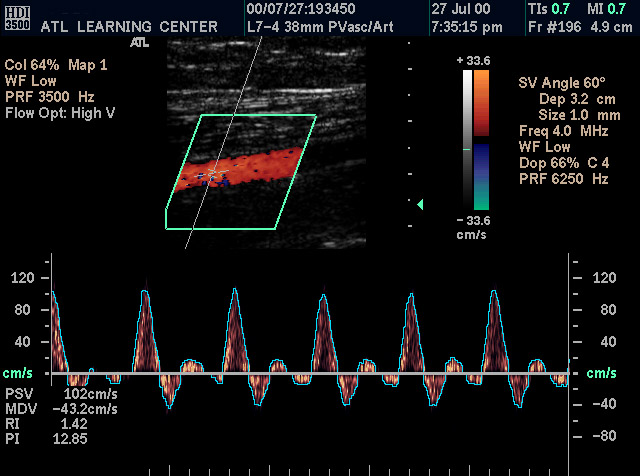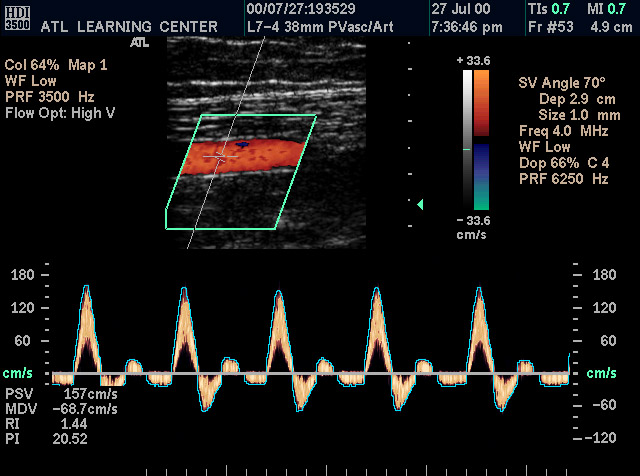A conflict arises when performing duplex imaging. Optimal visualization of the vessel in real-time imaging requires that structures of interest are perpendicular to the transducer. Optimal Doppler samples are obtained when flow is close to parallel to the transducer at small Doppler angles. Angle corrected velocity measurement addresses this issue.
It is very difficult to compare data obtained using different frequency Doppler transducers. Data will change depending upon the transducer frequency and the Doppler angle used. If Doppler frequencies are corrected for the angle of insonation and calculated as a velocity measurement, it is possible to compare data from different systems using different frequency transducers. By correcting for the operating frequency of the Doppler system and calculating for velocity, one factor that varies between duplex systems is eliminated.
Accuracy of velocity measurements is still dependent upon Doppler angle. It is recommended that angles of less than 60° be used since the cosine of the angle changes rapidly above 60°. Angle correction should also be parallel to flow so that the resulting measurement is accurate.
Notice in the clinical images below the different velocity measurements obtained at the same location in a vessel with different angle correction.

